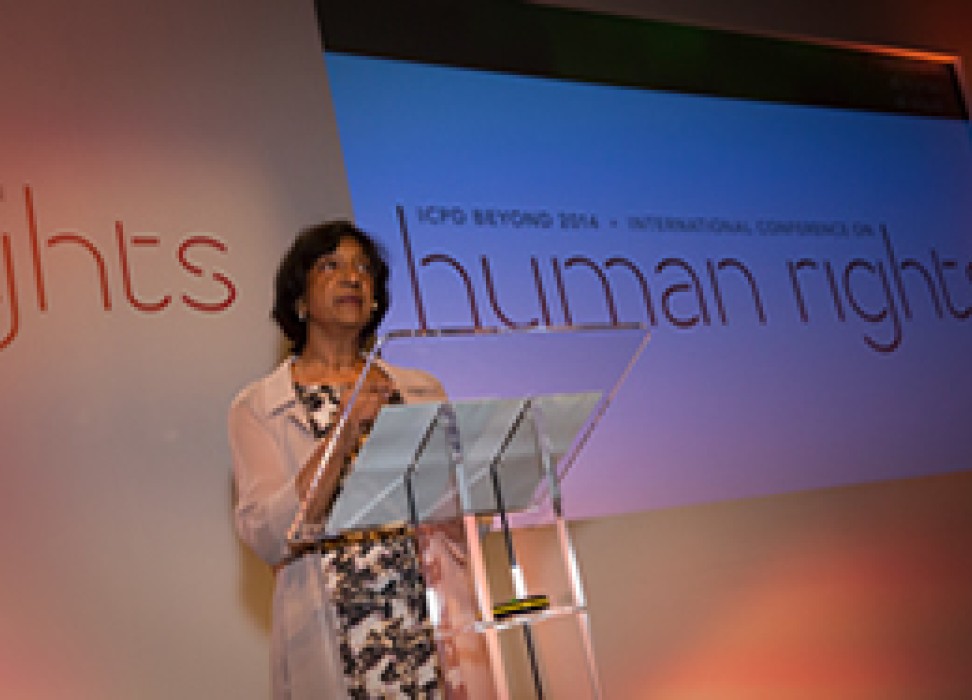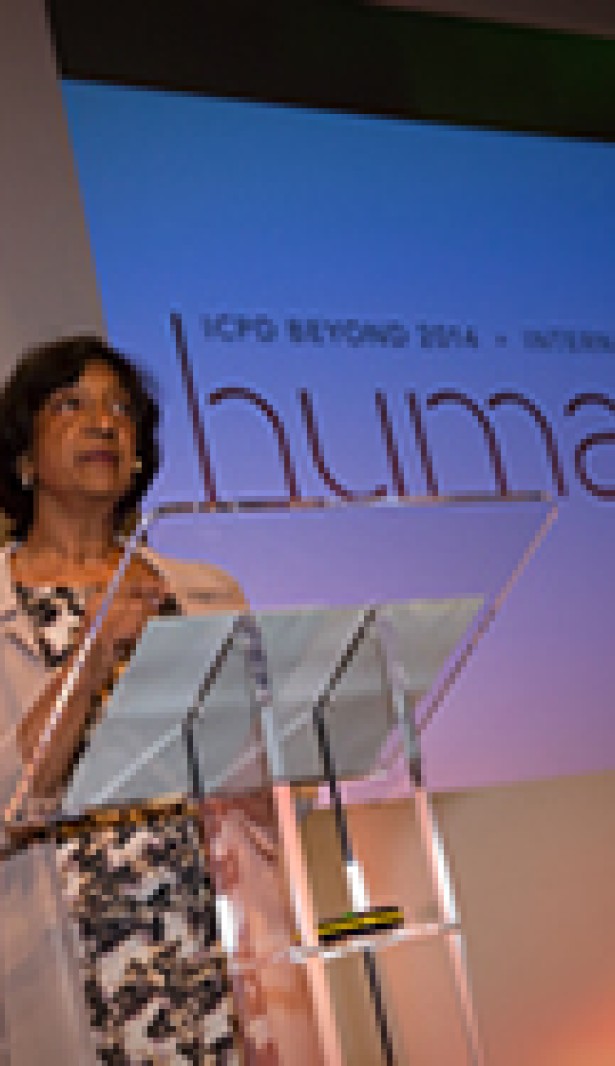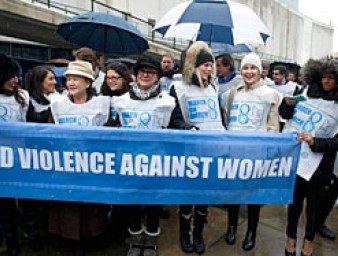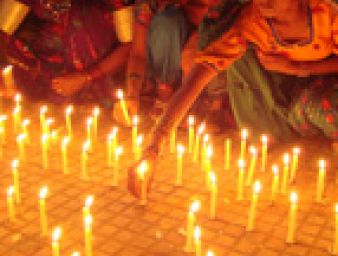ICPD Beyond 2014: advancing human rights for all women
09 July 2013

“When you tell people your job is about human rights, the first thing they think of is torture... They don’t tend to think of the right to health or the right to make choices about sex and reproduction. Even though these rights are vital to us all,” said Renée Jones-Bos, Secretary-General of the Dutch Ministry of Foreign Affairs, during the opening reception at the ICPD Beyond 2014 International Conference on Human Rights, held in the Netherlands.
The ICPD Beyond 2014 International Conference on Human Rights, part of the United Nations mandated review of the implementation of the 1994 International Conference on Population and Development (ICPD) Programme of Action, aims to highlight the human rights achievements in the past 20 years, while addressing the current issues in advancing sexual and reproductive health rights.
“The 1994 International Conference on Population and Development marked a turning point in the global campaign to secure human rights for women, girls, and marginalized groups,” said United Nations Secretary-General Ban Ki-moon in a special message delivered during the Conference by the Executive Director of the United Nations Population Fund (UNFPA), Babatunde Osotimehin. “This progress has been supported by a proliferation of national and international human rights institutions focused on addressing gender inequality, empowering women, and holding governments to account.”
The ICPD International Conference on Human Rights was hosted by the Government of the Netherlands in partnership with UNFPA and the UN Human Rights Office. The Conference, held on 7-10 July, brings together representatives from governments, civil society, academia, health service providers and international organizations to participate in several interactive panel discussions and workshops in order to be part of an open dialogue for advancing the agenda.
During the 1994 International Conference on Population and Development in Cairo, 179 countries adopted the groundbreaking Programme of Action, which integrated human rights principles into health and population policies. This agenda has provided couples and individuals, especially women, the power to make informed decisions about the size of their families and providing people with the information they need to make these decisions.
“The Programme of Action provides a solid foundation for us to translate human rights principles into reality on the ground,” said UN Human Rights Chief Navi Pillay. “When we placed gender equality and sexual and reproductive health at the core of the Programme of Action, we recognized that sustainable development is unachievable in a world in which discrimination against women is widespread, with sexual and gender based violence one of the most vicious manifestations of such discrimination.”
UNFPA Executive Director leveraged the Programme of Action as the prerequisite for ensuring the decline of maternal mortality, providing education to all girls, and granting access to sexual and reproductive health services to everyone. “Where treatment is available and accessible, HIV has changed from a death sentence to a chronic manageable disease,” Osotimehin said.
While more than 150 countries have implemented laws to end child marriage and maternal mortality has been reduced by half, there are still currently about 800 maternal deaths per day. The right to life means that preventable maternal deaths should be eliminated, Pillay said. “This means ensuring women have access to emergency obstetric care, and to safe abortion services, as well as the means to reach health facilities,” she said.
According to Pillay, the additional challenges remaining include gender-based violence, freedom of expression, the right to access of accurate information, and the right to health.
According to Osotimehin, there are more than 600 million girls in the world, while 500 million of them live in developing countries. “The opportunities and choices girls have during adolescence will enable them to begin adulthood as empowered, active citizens,” he said. “Together we are working to deliver a world where every pregnancy is wanted, every birth is safe, and every young person’s potential is fulfilled—where human rights are respected and people’s diversity is celebrated.”
9 July 2013

VIEW THIS PAGE IN:



